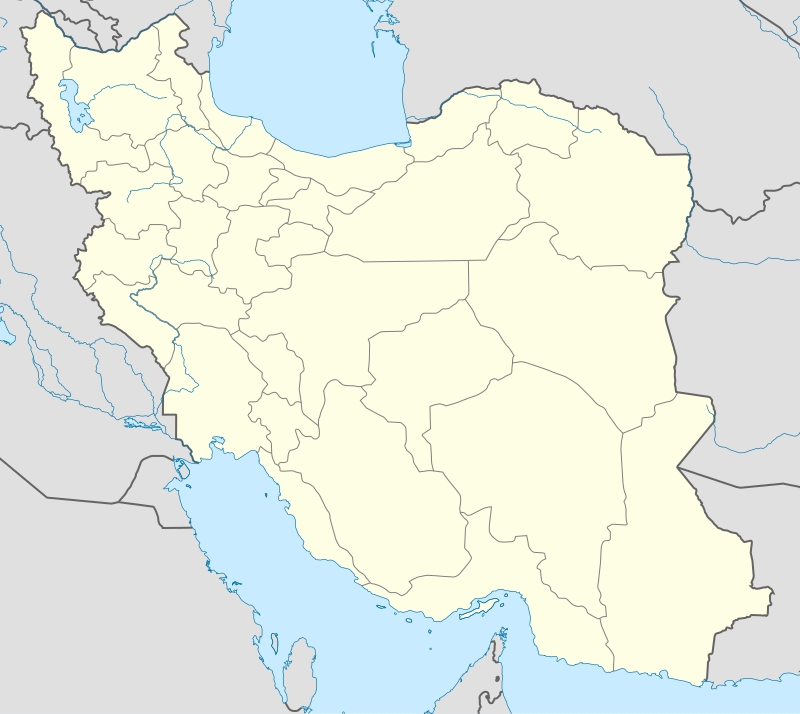Hajij-e Bozorg
Hajij-e Bozorg (Persian: حجيج بزرگ, also Romanized as Hajīj-e Bozorg; also known as Ḩajīj)[1] is a village in Sirvan Rural District, Nowsud District, Paveh County, Kermanshah Province, Iran. At the 2006 census, its population was 603, in 163 families.[2]
Hajij-e Bozorg حجيج بزرگ | |
|---|---|
village | |
 Hajij-e Bozorg | |
| Coordinates: 35°09′51″N 46°20′02″E | |
| Country | |
| Province | Kermanshah |
| County | Paveh |
| Bakhsh | Nowsud |
| Rural District | Sirvan |
| Population (2006) | |
| • Total | 603 |
| Time zone | UTC+3:30 (IRST) |
| • Summer (DST) | UTC+4:30 (IRDT) |
The village is in a district called "Hawraman" which lies through the mountains of Shaho. The language spoken by the native people is a variant of Kurdish called Hewrami. The tomb of Kose Hajij is located in the village. There is a large spring about 2 kilometers away from the village called Kani Bil or Bil spring which is the largest Karst spring in the region.
The earliest archaeological records shows that the Hajij vicinity was inhabited by human since Middle Paleolithic Period. This evidence were discovered by archaeologists near the village and include stone tools that probably made by Neanderthals. .[3]

References
- Hajij-e Bozorg can be found at GEOnet Names Server, at this link, by opening the Advanced Search box, entering "-3065417" in the "Unique Feature Id" form, and clicking on "Search Database".
- "Census of the Islamic Republic of Iran, 1385 (2006)". Islamic Republic of Iran. Archived from the original (Excel) on 2011-11-11.
- "Digs hint 40,000 yrs. of man life in Hawraman".